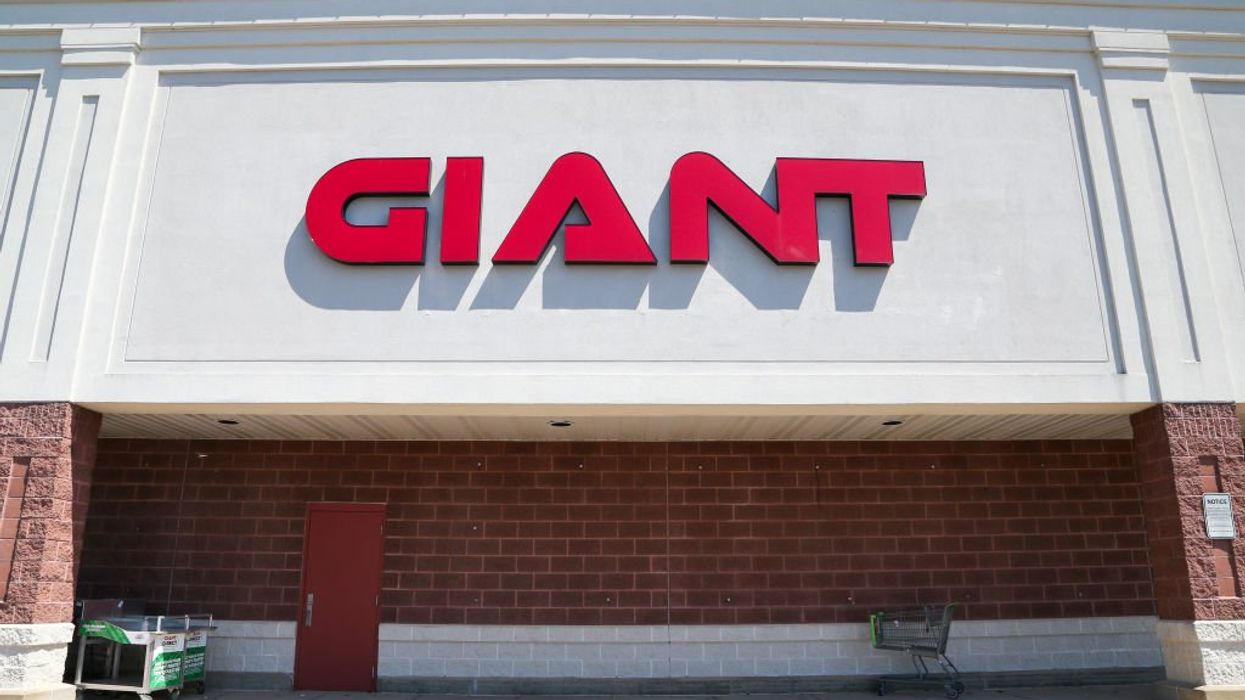
Paul Weaver/SOPA Images/LightRocket/Getty Images

Corporations that discriminate against white people and males in their advertisements should have their products massively boycotted. What worked against Bud Light could work in other circumstances.
I notice that every time I check myself out of a Giant supermarket in central Pennsylvania, I see a poster indicating that this chain store is looking for new workers. When I then look at whom the employers have in mind as potential help, I behold the picture of a young black woman. This young woman looks cheerful and attractive, but that’s not the point here. The store is obviously not interested in hiring white men or even necessarily black men. It seeks to give preferential employment treatment to black women. And lest anyone doubt its purpose, Giant management underlines this preference with the picture that accompanies its help-wanted sign.
The help-wanted poster is not exactly an inoffensive adornment. It is apparent that the grocery’s management is virtue-signaling and doing so in a very ugly way. It is building on the practice of our corporate capitalists who are removing white people and particularly white males from TV advertisements. Exceptions are made in these advertisements for white males with black spouses or homosexual partners or if it’s possible to stick them into a group made up predominantly of approved minorities.
Mind you, I’m not blaming this primarily on black women. Our corporate elites, who are behind it, are mostly white and male. They apparently think that it’s OK to marginalize other white males in order to exhibit their own progressive values and to win the praise of woke peers.
We might wonder how this ostentatious virtue-signaling is different from telling job applicants that Irish, Jews, and Italians need not apply because the prospective employer doesn’t like certain ethnic groups, even if he wouldn’t object to taking their money in commercial transactions.
Yes, I’ve heard the predictable leftist cant (as a former academic, I’ve had my fill of it) that this sort of thing is different from older discriminatory practices because it’s what the French call “positive discrimination.” Once we’ve renamed the exclusionary custom in question, it becomes an expression of the highest virtue to follow it — provided we also believe that the ancestors of those being excluded today inflicted, albeit unknowingly, indescribable suffering on the ancestors of those who are now being strenuously “recruited.”
Of course, this form of discrimination is not something that the virtue-signaler does quietly. Rather, he announces his intentions nonstop and even posts pictures to make sure that everyone gets his drift. The new discrimination is even crazier than older forms because it involves rich white people with fancy degrees dehumanizing other white people.
I doubt that most of Giant’s customers bother to take offense, even in our heavily pro-Trump borough, when they see white people, and particularly white males, treated as less than desirable applicants for grocery store work. They also see their sex and race marginalized or degraded on their TV screens, but they may view these unpleasant features of contemporary American culture as something over which they have no power. My neighbors may in fact feel helpless as they watch their humanity being downgraded.
Having grown up in a factory town in the Northeast in the 1950s, I can easily imagine that some of our local businesspeople preferred hiring white employees to black employees. Some also preferred hiring members of their own ethnic groups who spoke their ancestral languages (usually Hungarian or Italian where I lived) as opposed to employing those who seemed culturally more alien.
Although my father had at least one black employee, I don’t recall him ever celebrating this as a mark of virtue. He hired the employees he thought would do the work he needed them to do. Whether they were black or white didn’t matter from his business perspective.
Significantly, I don’t remember from my youth any grocery store owner putting up posters that showed the ethnic type he wanted to employ. Such conduct would have seemed gauche and even un-American. You just didn’t do those things back then, even if you wanted to hire a Sicilian-American man as opposed to a Hungarian-American lady to stack cans in your shop window.
Now things have changed. We show off our bigotry as proud agents of an anti-discrimination regime, the very essence of which is a morbid commitment to discrimination in the name of anti-discrimination.
Although I myself have not always been consistent in this practice, it seems that the only solution to the problem I have outlined is the enforcement of boycotts. Corporations that discriminate against white people and males in their advertisements should have their products massively boycotted. What worked for Bud Light could very well work for normal Americans in other situations. One may not be able to change the values of middle-level executives whose minds have been drenched with woke clichés. But one can make them pay for their bigotry; and one should begin this demanding task by pushing back against crude advertising.
Paul Gottfried